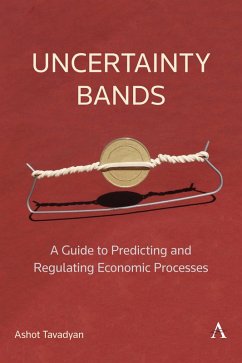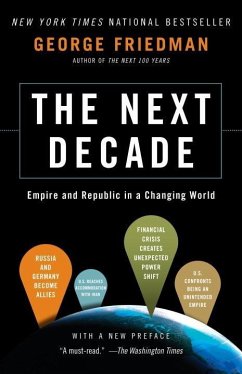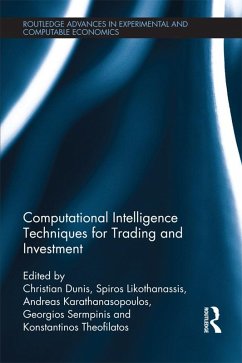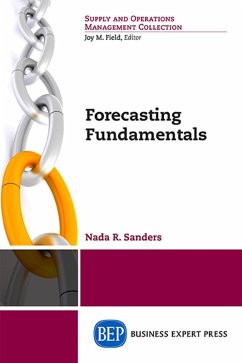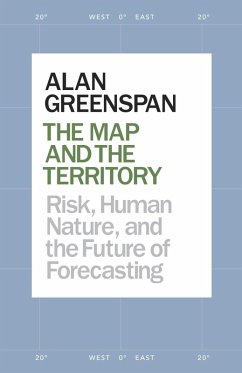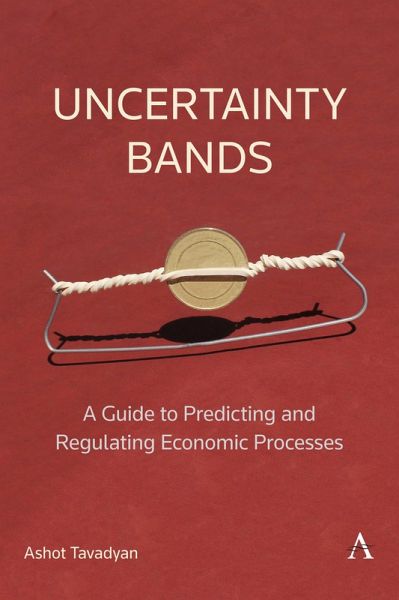
Uncertainty Bands: A Guide to Predicting and Regulating Economic Processes (eBook, ePUB)

PAYBACK Punkte
9 °P sammeln!
This book explores the philosophy of economic forecasting under uncertainty. In economics the extreme events are difficult and often impossible to predict, especially when leaning upon the past only. Events can be approximately evaluated, as they may be sudden and erratic. The presentation of programs for years ahead is of little value because the uncertainty intervals expand when economic volatility increases, forming uncertainty bands. This book presents the effect of an expanding uncertainty band.This book reasons that the economic system has sensitivity thresholds - critical states of econ...
This book explores the philosophy of economic forecasting under uncertainty. In economics the extreme events are difficult and often impossible to predict, especially when leaning upon the past only. Events can be approximately evaluated, as they may be sudden and erratic. The presentation of programs for years ahead is of little value because the uncertainty intervals expand when economic volatility increases, forming uncertainty bands. This book presents the effect of an expanding uncertainty band.
This book reasons that the economic system has sensitivity thresholds - critical states of economic processes at which they significantly alter their characteristics. In those critical states, economic phase transitions may occur. A slowdown in economic growth, especially a tangible recession, can result in negative qualitative changes in the economy, which can have a long-term impact. As in medicine, in economics, the diagnosis must not be rigid and permanent. Vital indicators could and will change throughout therapy. A rigid forecast resulting in an attempt to ensure the rigid stability of indicators is dangerous and fraught with irreparable economic losses.
To solve the issue of inflexible programs, this book presents the minimal uncertainty interval. This method is to open a logical path from the predicament of explaining its quantitatively precise indefinability of the indicators. The aim is to contribute to the flexible and realistic concept about possible dynamics of economic processes with interval forecasts and probabilistic evaluations of those events' outcomes. It is indicated that exiting the allowable intervals of regulatory indicators contributes to the emergence of economic diseases. This book tries to explore and systematize economic diseases, presents the factors that affect forecast efficiency, and makes the forecast satisfactory. Based on the systematization of the conducted research, this book formulates the ten principles of forecasting, which are necessary for forecasting the economic processes and decision-making under uncertainty.
This book reasons that the economic system has sensitivity thresholds - critical states of economic processes at which they significantly alter their characteristics. In those critical states, economic phase transitions may occur. A slowdown in economic growth, especially a tangible recession, can result in negative qualitative changes in the economy, which can have a long-term impact. As in medicine, in economics, the diagnosis must not be rigid and permanent. Vital indicators could and will change throughout therapy. A rigid forecast resulting in an attempt to ensure the rigid stability of indicators is dangerous and fraught with irreparable economic losses.
To solve the issue of inflexible programs, this book presents the minimal uncertainty interval. This method is to open a logical path from the predicament of explaining its quantitatively precise indefinability of the indicators. The aim is to contribute to the flexible and realistic concept about possible dynamics of economic processes with interval forecasts and probabilistic evaluations of those events' outcomes. It is indicated that exiting the allowable intervals of regulatory indicators contributes to the emergence of economic diseases. This book tries to explore and systematize economic diseases, presents the factors that affect forecast efficiency, and makes the forecast satisfactory. Based on the systematization of the conducted research, this book formulates the ten principles of forecasting, which are necessary for forecasting the economic processes and decision-making under uncertainty.
Dieser Download kann aus rechtlichen Gründen nur mit Rechnungsadresse in A, D ausgeliefert werden.




